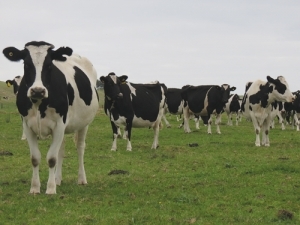TB plan review to focus on possum hot spots
New Zealand is closer to eradicating bovine TB than ever before, but possums remain a threat, says Beef + Lamb New Zealand.
 Since 2011, OSPRI's TBfree programme has eradicated TB from 1.2 million hectares and infected herds are down to 35 – a huge decrease from nearly 1700 in 1994.
Since 2011, OSPRI's TBfree programme has eradicated TB from 1.2 million hectares and infected herds are down to 35 – a huge decrease from nearly 1700 in 1994.
The farming industry's investment in TB eradication is proving to be effective as OSPRI lifts stock movement restrictions and reduces testing requirements in many areas.
The reductions to disease control areas affects 5.3 million hectares and nearly 10,000 herds, resulting in 500,000 fewer TB tests. The changes are effective from tomorrow (March 1).
Farmers in regions where movement control areas have been removed will benefit from the freedom to move stock without any pre-movement tests, or from significantly less TB tests as special testing area requirements are reduced.
Tasman dairy farmer Phil Riley used to pre-movement TB testing for 22 years, but will be glad to see the back of it. "A lot of us had got used to it, and it's just another job that you have to do on the farm. But it's great to see the back of it, because it makes it that bit more difficult if you happen to be selling your farm or stock."
Since 2011, OSPRI's TBfree programme has eradicated TB from 1.2 million hectares and infected herds are down to 35 – a huge decrease from nearly 1700 in 1994.
Riley says, "We've only got to look at the progress OSPRI's TBfree programme has made to see that as we get better at establishing where the risk is, movement control areas will get smaller and smaller."
OSPRI chief executive Michelle Edge explains that as OSPRI's work proves successful in each area, disease control areas are reviewed based on detailed scientific analysis and data modelling. Accordingly, where TB eradication targets have been met the testing requirements are reduced.
"The progress of OSPRI's TBfree programme is a credit to farmers and the industry and Government organisations that are shareholders and investors in the TBfree programme and is another step towards New Zealand becoming TB-free."
The plan for how OSPRI manages TB is likely to change from July 1, 2016 after a recent review of the National Pest Management Plan. A proposal in response to the review was developed by an independent group comprising key investors and stakeholders of both industry and Government. This process included scientific modelling, a review of operational outcomes and a full public consultation process. The review established that eradication of TB is achievable. The proposal is currently with the Minister for Primary Industries for approval.
OSPRI's TBfree programme currently divides the country into a number of disease control areas, each with different TB testing requirements depending on the risk of TB being transferred from infected wildlife (mainly possums) to cattle and deer. Intense TB testing, movement control and both ground and aerial pest control are used to stop the spread of TB and continue its eradication nationwide.
The Push-Up Challenge, an event which combines mental health and fitness, is set to launch in New Zealand in 2026.
Last month's Agritechnica event led to a wide group of manufacturers celebrating successes when the 2026 Tractor of the Year Competition winners, selected by a panel of European journalists, were announced in Hanover Germany.
According to the latest Federated Farmers banking survey, farmers are more satisfied with their bank and less under pressure, however, the sector is well short of confidence levels seen last decade.
Farmer confidence has taken a slight dip according to the final Rabobank rural confidence survey for the year.
Former Agriculture Minister and Otaki farmer Nathan Guy has been appointed New Zealand’s Special Agricultural Trade Envoy (SATE).
Alliance Group has commissioned a new heat pump system at its Mataura processing plant in Southland.
President Donald Trump’s decision to impose tariffs on imports into the US is doing good things for global trade, according…
Seen a giant cheese roll rolling along Southland’s roads?